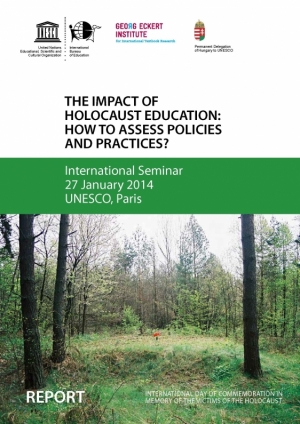
The Holocaust confronts teachers with one of education’s greatest challenges; the history of the Shoah tests the limits of human understanding in its inhumanity, its complexity and its emotional power. As we summon educators to this most important and most difficult of tasks, a consensus has taken hold that the Holocaust must be understood not only in the places where it occurred, not only in the societies most directly affected by its crimes, but throughout the world.
UNESCO, which is charged with “promoting awareness of Holocaust remembrance through education” marked the International Day of Commemoration in Memory of Victims of the Holocaust on 27 January 2014 by convening an international seminar for members of the global community who are involved with and committed to this mandate. The event, titled “The Impact of Holocaust Education: How to Assess Policies and Practices”, aimed at highlighting current practices and debates in the field of research in Holocaust education.
It was organized in partnership between UNESCO, including its International Bureau of Education, and the Georg Eckert Institute for International Textbook Studies with the support of the Delegation of Hungary to UNESCO.